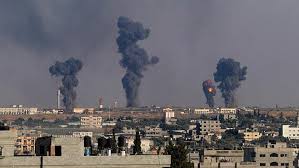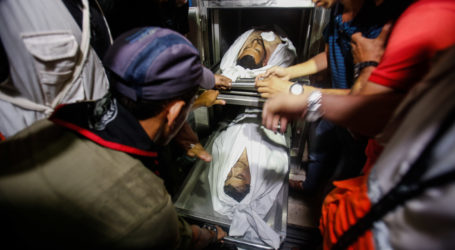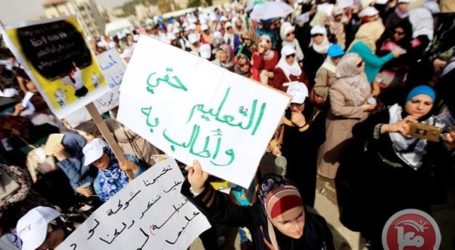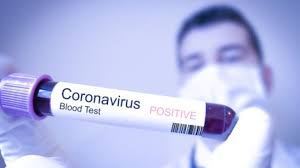On Anniversary, 900 Gazans Remain in Need of Care for Injuries Sustained in 2014 War

Bethlehem, 03 Syawal 1437/08 July 2016 (MINA) – Some 900 Palestinians in the Gaza Strip continue to require medical attention as a result of permanent disabilities they sustained during Israel’s devastating 51-day assault on the small territory that began on July 8, 2014, Ma’an reported on Thursday, quoting UNRWA, the United Nations agency for Palestinian refugees
On the second anniversary of the war, the Gaza Strip’s Shifa hospital had 3,839 registered patients waiting for scheduled operations, more than half of which were classified as major surgeries, according to a statement published Monday by UNRWA, adding that surgical appointments were being scheduled for as far away as 2018.
“Some patients are still suffering two years after their injury and need ongoing care. Many others are still waiting for prosthetic limbs. The state of prosthetics in Gaza is still very precarious,” Dr. Mahmoud Matar, an orthopedic surgeon at Gaza’s Shifa hospital told UNRWA.
UNRWA stressed in their statement that “The long waiting lists have left many frustrated, sometimes in unnecessary pain and facing health risks associated with delayed care.”
Meanwhile, a significant part of Gaza’s healthcare infrastructure remains severely damaged, which according to the Palestinian Ministry of Health and the World Health Organization (WHO) had already been near collapse prior to the start of the hostilities.
Al-Wafa hospital in Gaza City and three primary healthcare clinics were completely destroyed in the war, in addition to 18 hospitals and 60 clinics that sustained damages.
“To date, all of these facilities have been or are in the process of being repaired/reconstructed, with the exception of the al-Wafa hospital which requires major funding to proceed with reconstruction,” UNRWA said.
Israeli enforced blockade
A total of 11,200 Palestinians — including 3,800 children — were wounded in the war, according to UN documentation.
Meanwhile, some 36,000 Palestinians — 20 percent of the Gaza Strip’s population — are estimated to require mental health support as a result of the war, according to the WHO.
UNRWA said the backlog in treatment is mainly due to the lack of skilled personnel in the Gaza Strip’s crumbling healthcare system.
“This situation is partially a result of the (Israeli enforced) blockade, which limits outside training opportunities, and of the internal Palestinian divide, which has left public employees recruited by the de facto authorities, including health staff, without regular salaries.”
The Gaza Strip has suffered under an Israeli military blockade since 2007, when Hamas was elected to rule the territory. Residents of Gaza suffer from high unemployment and poverty rates, as well as the consequences of three devastating wars with Israel since 2008, most recently in the summer of 2014.
The 51-day Israeli offensive, termed “Operation Protective Edge” by Israeli authorities, resulted in the killings of at least 1,462 Palestinian civilians, a third of whom were children, according to the UN.
The UN has said that the besieged Palestinian territory could become “uninhabitable” by 2020, as its 1.8 million residents remain in dire poverty due to the nearly decade-long Israeli blockade that has crippled the economy, while continuing to experience the widespread destruction wrought by the Israeli offenses, and the slow-paced reconstruction efforts aimed at rebuilding homes for some 75,000 of Palestinians that remain displaced following the last Israeli assault. (T/R07/R01)
Mi’raj Islamic News Agency (MINA)






